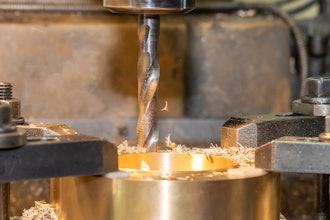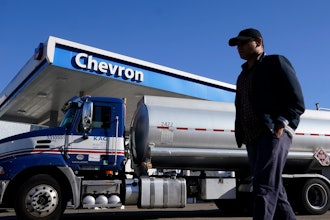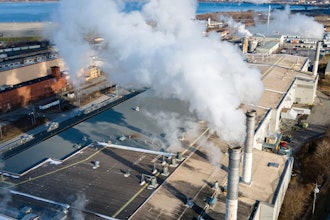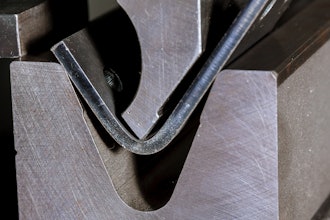Canton, OH - The Timken Company today reported sales of $1.1 billion for the first quarter of 2013, a decrease of 23 percent from the prior-year quarter. The decline reflects lower demand across most of the company's end markets led by oil and gas, industrial distribution and off-highway market sectors, partially offset by acquisitions and improved pricing. In addition, steel surcharges declined $72 million from the prior-year quarter.
Timken generated income in the first quarter of $75.1 million, or $0.77 per diluted share, compared with $155.7 million, or $1.58 per diluted share during the same period a year ago. Included in the results were costs related to previously announced plant closures of $0.03 per diluted share. The decrease in first-quarter earnings was driven by lower demand, mix and higher manufacturing costs, partially offset by improved pricing and lower selling and administrative expenses.
"First quarter results were in line with our expectations, reflecting difficult comparisons from record first quarter 2012 results," said James W. Griffith, Timken president and chief executive officer. "Our integrated business model, along with our continued focus on driving efficiencies across our business, enabled us to sustain double-digit operating margins while the company experienced low levels of capacity utilization.
"We saw orders increase as the quarter unfolded," Griffith added, "and we remain confident in our ability to drive improved profitability throughout the remainder of the year."
At quarter-end, total debt was $472.5 million, or 16.9 percent of capital. As of March 31, 2013, the company had cash of $457.9 million, resulting in $14.6 million of net debt, compared with a net cash position of $107.4 million as of December 31, 2012. The change reflects lower earnings as well as discretionary pension contributions of $66 million, net of tax, partially offset by lower working capital requirements of approximately $22 million.
Among recent developments, the company:
- Announced the completion of three previously disclosed capital investment projects totaling $85 million that increase capacity and manufacturing effectiveness in its Steel segment. The investments include an open-die in-line forge press, an intermediate finishing line and a second induction thermal treatment line at steel facilities in Canton, Ohio;
- Expanded its service and product offering across key end markets through two acquisitions: Smith Services, Inc., a provider of electric motor rewind and repair, and Interlube Systems Ltd., a U.K.-based provider of automated lubrication delivery systems and services;
- Entered into a strategic asset purchase agreement with The Greenbrier Companies, Inc., expanding the Mobile Industries' rail bearing reconditioning activities; and
- Earned recognition as one of the World's Most Ethical Companies for the third time since 2010 by Ethisphere, an international organization focused on the advancement of best practices in corporate governance, risk, sustainability, compliance and ethics.
Mobile Industries Segment Results
In the first quarter, Mobile Industries' sales of $397.1 million decreased 15 percent compared to last year's first-quarter sales of $469.1 million. The $72 million decrease included $27 million related to exited business consistent with the company's market strategy in the light-vehicle and heavy-truck market sectors. The remaining decrease was primarily driven by lower volume in most market sectors led by weaker off-highway demand in mining and construction.
EBIT for the segment was $51.2 million for the first quarter, or 12.9 percent of sales, down 41 percent from $86.7 million, or 18.5 percent of sales for the same period a year ago. The decrease was driven primarily by lower volume, higher manufacturing costs and the impact of exited business, partially offset by lower selling and administrative expense. In addition, the segment incurred $4 million of costs associated with the closure of the St. Thomas, Canada, and Sao Paulo, Brazil, bearing plants.
Process Industries Segment Results
Process Industries' first-quarter sales were $285.2 million, down 20 percent from $355.6 million for the same period a year ago. The decrease reflects lower industrial distribution demand and lower original equipment sales, partially offset by pricing and the favorable impact of the Wazee acquisition.
Process Industries' first-quarter EBIT was $42.6 million, or 14.9 percent of sales, down 48 percent from $82.3 million, or 23.1 percent of sales for the same period a year ago. The decrease primarily reflects lower volume. Unfavorable mix and higher manufacturing costs were offset by favorable pricing and lower selling and administrative expenses.
Aerospace Segment Results
Aerospace posted first-quarter sales of $82.5 million, down 10 percent from $91.3 million for the same period last year. The decrease reflects lower volume in the motion control sector as well as lower civil aerospace sales.
First-quarter EBIT was $8.6 million, or 10.4 percent of sales, down 20 percent from $10.7 million, or 11.7 percent of sales for the same period a year ago. The decline in EBIT reflects lower volume as well as higher manufacturing costs, partially offset by pricing and lower selling and administrative expenses.
Steel Segment Results
Sales for Steel, including inter-segment sales, were $346.1 million in the first quarter, a decrease of 35 percent from $535.5 million for the same period last year. The results reflect reduced shipments to the oil and gas and industrial market sectors. Raw-material surcharges decreased approximately $72 million from the first quarter last year.
First-quarter EBIT was $35.8 million, or 10.3 percent of sales, down 59 percent from $88 million, or 16.4 percent of sales, for the same period a year ago. The decline in EBIT was primarily due to lower volume and unfavorable mix. Last year's results included a one-time expense of $5 million related to a new five-year labor agreement.
Outlook
The company reaffirmed its outlook for the full year based on its continued expectation of improved demand during the latter half of 2013. Sales are expected to be down around 5 percent compared to 2012 while operating performance is expected to remain strong, with all four segments maintaining double-digit operating margins for the full year.
For the full year, The Timken Company expects sales in:
- Mobile Industries' to be down 5 to 10 percent for the year due to the impact of lower customer demand driven by the company's market strategy;
- Process Industries' to be relatively flat, based on a second-half recovery in Asia and industrial distribution;
- Aerospace to be up 7 to 12 percent, due to increased demand in civil and defense as well as critical motion control end markets; and
- Steel to be down 7 to 12 percent, driven by lower oil and gas as well as industrial end-market demand and surcharges.
Timken projects 2013 annual earnings per diluted share to range from $3.75 to $4.05, which includes costs for previously announced plant closures totaling approximately $0.20.
The company expects to generate cash from operations of approximately $330 million in 2013. Free cash flow is projected to be a use of $120 million after making capital expenditures of about $360 million and paying about $90 million in dividends. Excluding discretionary pension and VEBA trust contributions of approximately $180 million, net of tax, the company forecasts free cash flow of approximately $60 million in 2013.






















